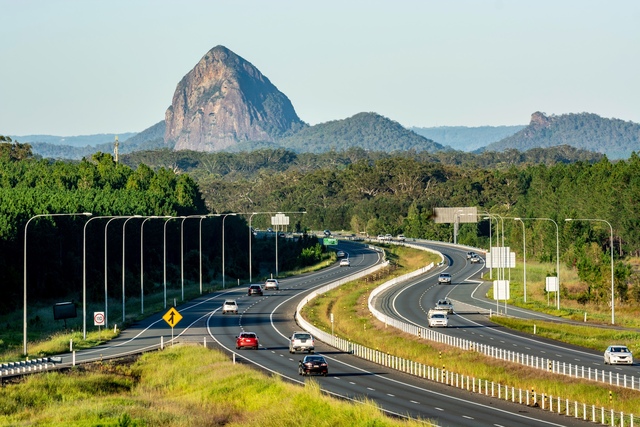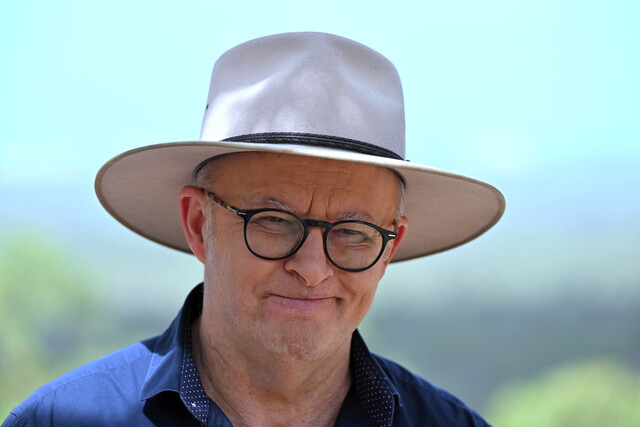The Albanese Government’s commitment of $7.2 billion towards the upgrade of the Bruce Highway is a very significant commitment to the Queensland and national economy.
Sure there’s an election looming and Queensland’s votes are particularly important. But it was only a few months ago that Albanese and his Infrastructure Minister were announcing that the feds would in future pay a maximum of 50 per cent of major infrastructure projects. This Bruce Highway play will push the feds share to around 80 per cent of the total cost.
Already the pundits are saying that this isn’t enough funding, and it certainly won’t be unless construction reform is made a priority. As I recently pointed out, the recent upgrade of the Gordonvale-Edmonton section (10.5 km) cost over $500 million. The Queensland Government has identified the priority sections. My advice is to make them a series of model projects where cost savings of at 20-30 per cent should be the target.
My contacts in the federal infrastructure department are shrugging their shoulders at Albanese’s abandonment of the 50 per cent cost-sharing policy. Let’s hope the Bruce Highway is an exception. The state road authorities are mostly run by engineers with seemingly little appreciation of how to achieve savings in road construction. That’s where a strong focus is required.
Wall Street will decide Trump’s fate
I was talking to a former senior Defence official over Christmas drinks. The conversation swung to how incoming US President Trump might view the AUKUS defence agreement.
He gave a despairing look (seemingly on both Trump and AUKUS),but became animated when he pondered whether the Australian Government, of whatever hue, would invite Trump to visit Australia as part of some schmoozing exercise. We agreed that the downside would be hundreds of thousands marching in the streets, protesting at the Trump Government’s arrogance and bullying. Shades of our Vietnam War marches?
The bullying could be Trump’s defining legacy. He and his ‘advisers’ are currently making veiled threats about Greenland, the Panama Canal, Canada as the 51st state, stopping international aid, 25 per cent tariffs on imports from Canada and Mexico, 60 per cent on imports from China. Trump is now talking about collecting tariffs from overseas and putting them into a US Treasury Fund. He doesn’t realise these new tariffs will be paid by US consumers.
Having spent years working on economic development, tariff policy and international collaboration, I’m deeply worried that his threats aren’t just a negotiating ploy, but might actually happen.
One particular risk is that the international trade and development ecosystem is a finely-balanced apparatus. It has developed to a point where nations and regions, including our own, have benefitted hugely from free trade and international investment.
US bureaucrats comprise some of our Cockatoo membership (open to collaborative LG Focus readers BTW) and they’re privately concerned about massive economic dislocation if a trade war breaks out. One commented as follows ‘The US exports large quantities of pharmaceuticals, medical equipment, chemicals, food and drink, transport equipment and financial services to the European Union. Retaliatory tariff hikes on US exports by the EU will be felt immediately in Wall Street, and subsequently across the US manufacturing belt. This is the risk facing the ‘Make America Great Again movement.’
A brilliant political analyst
Dr Nick Bryant, a former BBC correspondent, delivered the Australia and the World Annual Lecture last November at the National Press Club.
His theme was that Australia has become a serious player not just in geopolitics, economics and culture, but increasingly as a policy trendsetter, both good and bad. He has a doctorate in US politics from Oxford. So, his views are very timely. Bryant is absolutely brilliant. Google ‘NPC Nick Bryant’.
Dutton’s odd promises
Opposition Leader Dutton has recently made two questionable election promises of late.
The first is Dutton’s promise to cut 36,000 public service jobs in Canberra. Sure, there is fat in the APS, and every incoming conservative government threatens major APS employment cuts. Dutton’s promise is surely aimed at voters with little knowledge or interest in federal politics, and an underlying view that most federal bureaucrats vote Labor and can’t be trusted. This partly explains why the Abbott/Morrison governments spent so much on the Big Four consultants.
The truth of the matter is junior and middle-level federal bureaucrats might push their political allegiances, but it’s a career-limiting practice. I’ve sat on countless interview panels, and if there’s over-politicisation of an issue by an interviewee, alarm bells start ringing. Senior bureaucrats must not allow politics to cloud their views and policy advice. If it does, they’re invited upstairs for a chat.
While on the subject, local councillors meeting with Ministers shouldn’t try to curry favour by explaining their political allegiances. Tawdry and counter-productive. Stick to the fundamentals.
Should Dutton become PM in May, he’d be wise to utilise the skills of his bureaucrats, and wind back the use of consultants and working from home arrangements. All three levels of government need their staff sitting around the table contesting ideas, instead of interacting via email.
Dutton’s second promise is to reinstate tax deductibility for business lunches. The concession would be limited to businesses with a turnover of less than $10 million. Thís is reportedly ‘to enable business owners to take their employees out for a pub lunch to celebrate a week of hard work’ and to give the ‘hospitality restaurant sector a leg-up. This is quite pathetic. As Keating said when he stopped these rorts, let them eat Vegemite sandwiches in the park.
Rod Brown is a Canberra-based lobbyist specialising in industry/regional development. Email apdcockatoo@iprimus.com.au


















